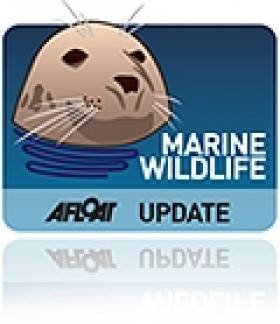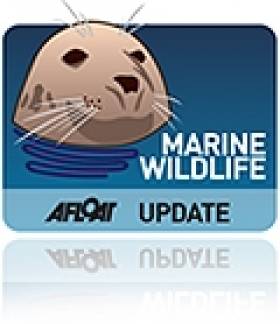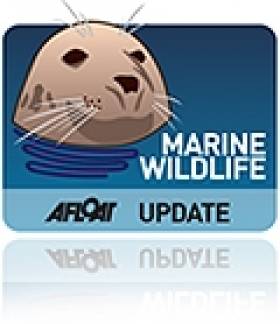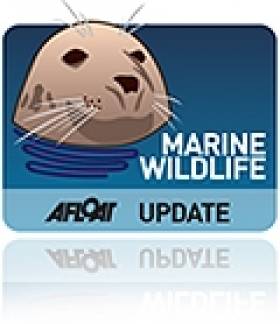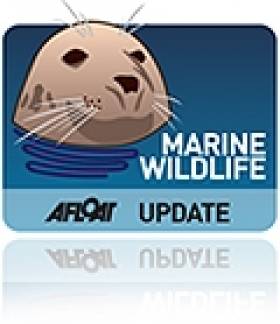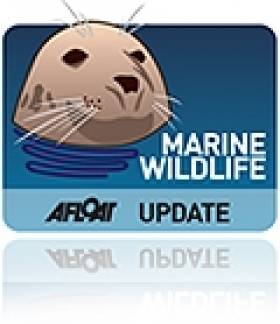Displaying items by tag: IWDG
New Course For Marine Tour Operators
The Irish Whale and Dolphin Group (IWDG) is running a new course for marine wildlife tour operators in Galway on 27-28 November.
The two-day course - at the campus of the Galway-Mayo Institue of Technology in Letterfrack - is intended to promote and support responsible marine wildlife tourism, and may provide a basis for a future accreditation scheme for the industry.
The course will be delivered by Dr Simon Berrow and Conor Ryan of the IWDG and is part funded by the Irish Environmental Network under the Department of Environment, Heritage and Local Government's Biodiversity Fund 2010.
Topics covered in the course will include the identification and ecology of marine animals and sea birds, as well as the relevant legislation pertaining to the wildlife tourism industry.
The course fee is €50 per person. Further information is available from Simon Berrow at the Irish Whale and Dolphin Group, Merchants Quay, Kilrush, Co Clare at 086 8545450 or [email protected].
Sonar Possible Culprit in Whale Death Tragedy
Sonar activity by Royal Navy submarines may have caused the deaths of up to 35 pilot whales off the coast of Co Donegal at the weekend, an expert has claimed.
Dr Simon Berrow of the Irish Whale and Dolphin Group (IWDG) said that naval activity in the area is one possible cause of the tragedy.
"Naval exercises use a low frequency active sonar which is known to affect whales very badly," he told the Belfast Telegraph. "Basically it affects their sonar and causes a gas embolism, like the ‘bends’."
The Telegraph reports that tests are still being carried out to determine if the whales that beached on Rutland Island, near the fishing village of Burtonport, are the same as a group monitored in Scotland's outer Hebrides the previous weekend.
The pilot whales had reportedly been swimming off Co Donegal for the past week before they were found dead.
The Belfast Telegraph has more on the story (with photos) HERE.
Post Mortem on Mass Pilot Whale Strandings Cancelled Due to Bad Weather
Plans to carry out a post-mortem examinations on thirty-five Pilot whales found dead on a beach in Co Donegal yesterday have been cancelled due to bad weather according to Dr. Simon Berrow of the Irish Whale and Dolphin Group (IWDG).
Up to thirty-five Pilot whales were found dead on a beach in Co Donegal. The whales were discovered on Rutland Island near Burton port yesterday afternoon on a beach and have been confirmed as pilot whales, mostly mothers and calves.
A team from the Galway-Mayo Institute of Technology led by Dr Ian O'Connor and the Irish Whale and Dolphin Group are planning to travel to record length, gender and obtain photographs to see if they can be matched to the recently observed Scottish animals. Skin samples and teeth will also be collected for genetics and life-history studies.
According to locals the whales had been seen feeding in the area around Aranmore Island since Tuesday.
A group of around 30 pilot whales were monitored in South Uist in the outer Hebrides, Scotland last weekend for fear of their live-stranding. The IWDG believe it may be the same group.
Pilot whales have a tendency to strand themselves in large numbers and a similar incident occurred in Co Mayo a few years ago. In June Cape Verde islanders abandoned hope for the survival of 92 pilot whales that were found washed up in a mass beaching. In September in New Zealand at least 25 pilot whales died after beaching themselves in a north Wellington bay as rescuers battled to save almost 50 more stranded.
RTE News has pictures HERE
Minke Whales in Big Numbers Off Southwest Coast
The Irish Whale and Dolphin Group (IWDG) has recorded two surprisingly large aggregations of minke whales off the southwest coast.
The group reports that regular observer Nick Massett counted a group of eight minke whales off Slea Head in Co Kerry, which is a high count for the area.
But fellow observer Parick Lyne trumped that number with his sighting of at least 16 minke whales at the entrance to Bantry Bay between Bere Island and Sheep Head.
The IWDG said it "can't recall such large numbers of mikle whales in a relatively small area".
The group speculates that an abundance of "whale food" in southwest coastal waters is attracting their attention.
Dead Dolphin in Youghal Prompts Vigilance
Following the discovery of a dead dolphin in Youghal last week, the Irish Whale and Dolphin Group (IWDG) has called on locals to be watchful for marine mammals in distress.
The common dolphin was found washed up on Clay Castle beach last Wednesday 29 September. The species is a frequent visitor to Youghal, and has even been seen upstream in the river Blackwater.
If anyone in the Youghal area comes across a dead or live stranded dolphin, they are urged to contact their area IWDG members Paradig Wholley (Tel: 023 8838761) or Janet Howley (Tel: 086 3977160) or visit www.iwdg.ie.
Monty Halls Gives Talk on 'Capturing Giants'
Renowned diver Monty Halls is set to present a public talk on his marine animal work filming whales, sharks and dolphins around the world tomorrow night (7 October).
Halls, who has been in Ireland since April making his latest documentary series for the BBC, has been assisting the Irish Whale and Dolphin group (IWDG) with its research on whales, dolphins and basking sharks in Irish waters.
The diver, filmmaker and former Royal Marine, who is also a popular motivational speaker and performance coach, will talk on his experiences filming and diving with marine mammals around the world, and will surely provide some great entertainment.
The talk, part of the Tales of the Whales Lecture Series organised by the IWDG and the Galway-Mayo Institute of Technology (GMIT), begins at 8pm on Thursday 7 October in Lecture Room 1000 at GMIT, Dublin Road, Galway. The event is free and all are welcome to attend.
Killer Whales Spotted off Kerry Coast
The Irish Whale and Dolphin Group (IWDG) spotted killer whales off the coast of county Kerry during an offshore survey last weekend. The killer whales crossed within two metres of the bow of the research vessel, others swam just beneath the surface keeping a parallel course with the surveyors.
The sighting of an adult pod is a rare encounter in Irish waters. 2010 has been a good year for killer whale sightings here with 14 validated records to date.
IWDG surveyors were able to photograph the whales and have sent the findings to expert researchers in the University of Aberdeen. It is understood these are new animals, not previously catalogued during the past few years of surveying killer whales in the North East Atlantic.
More on the sightings HERE.


























